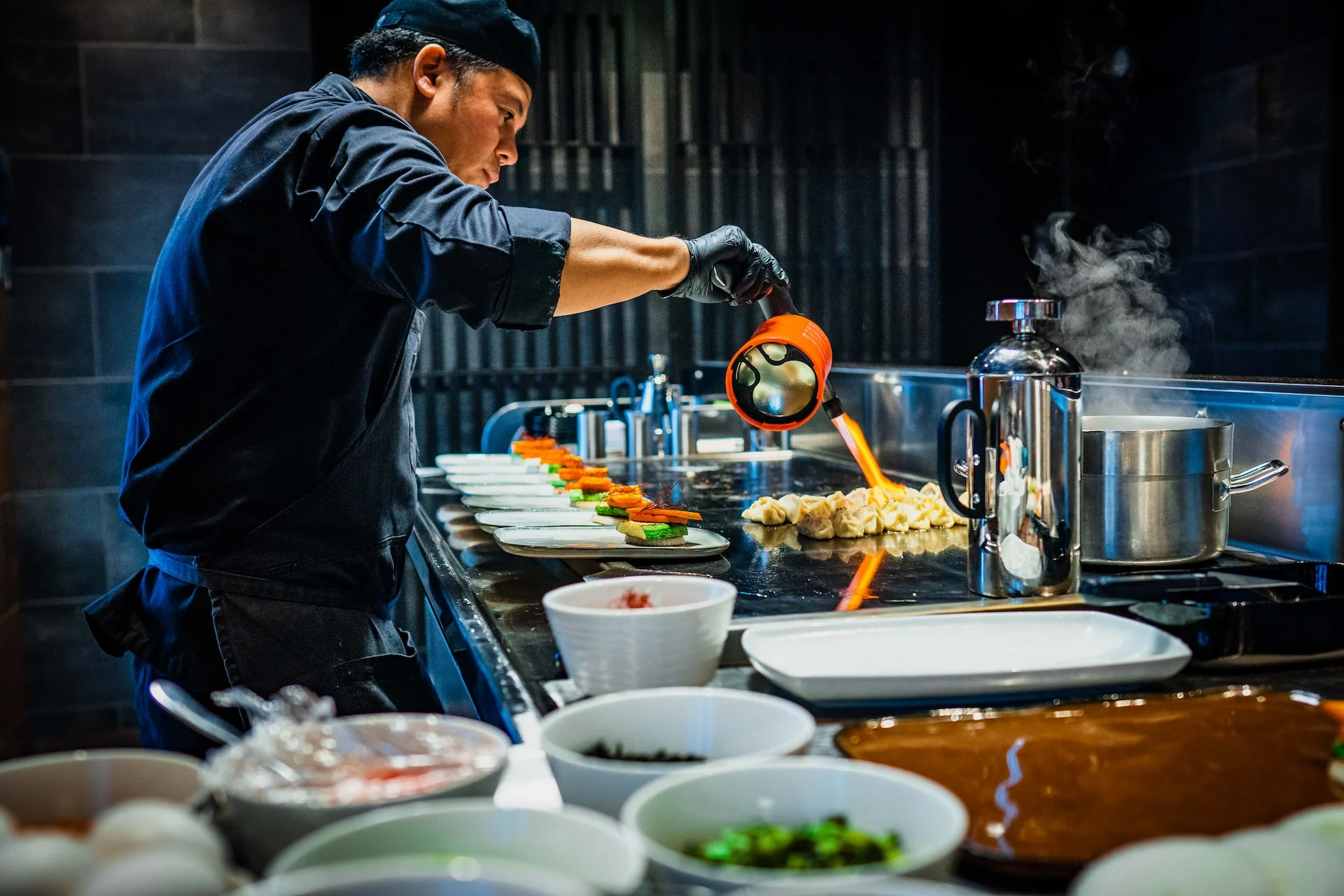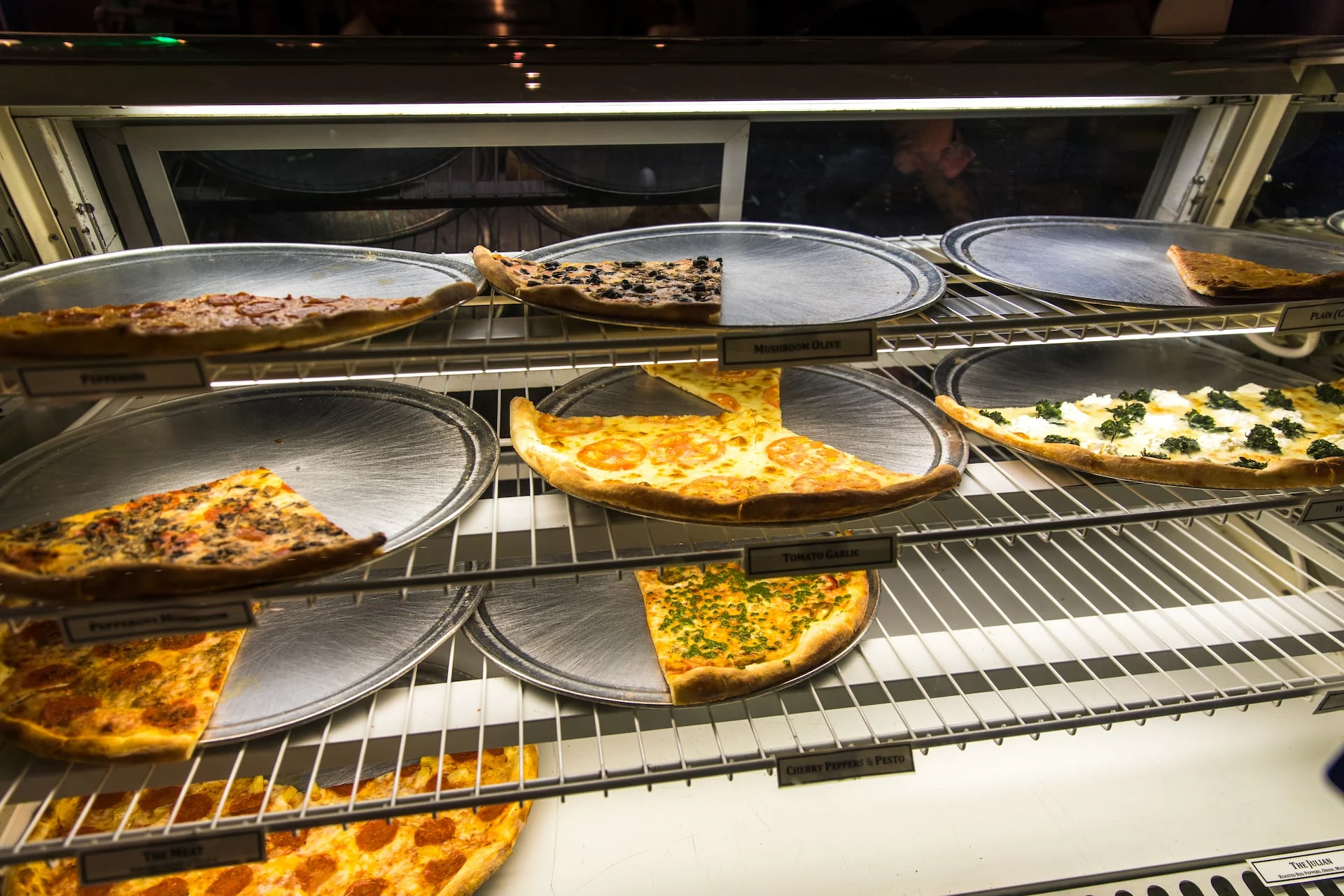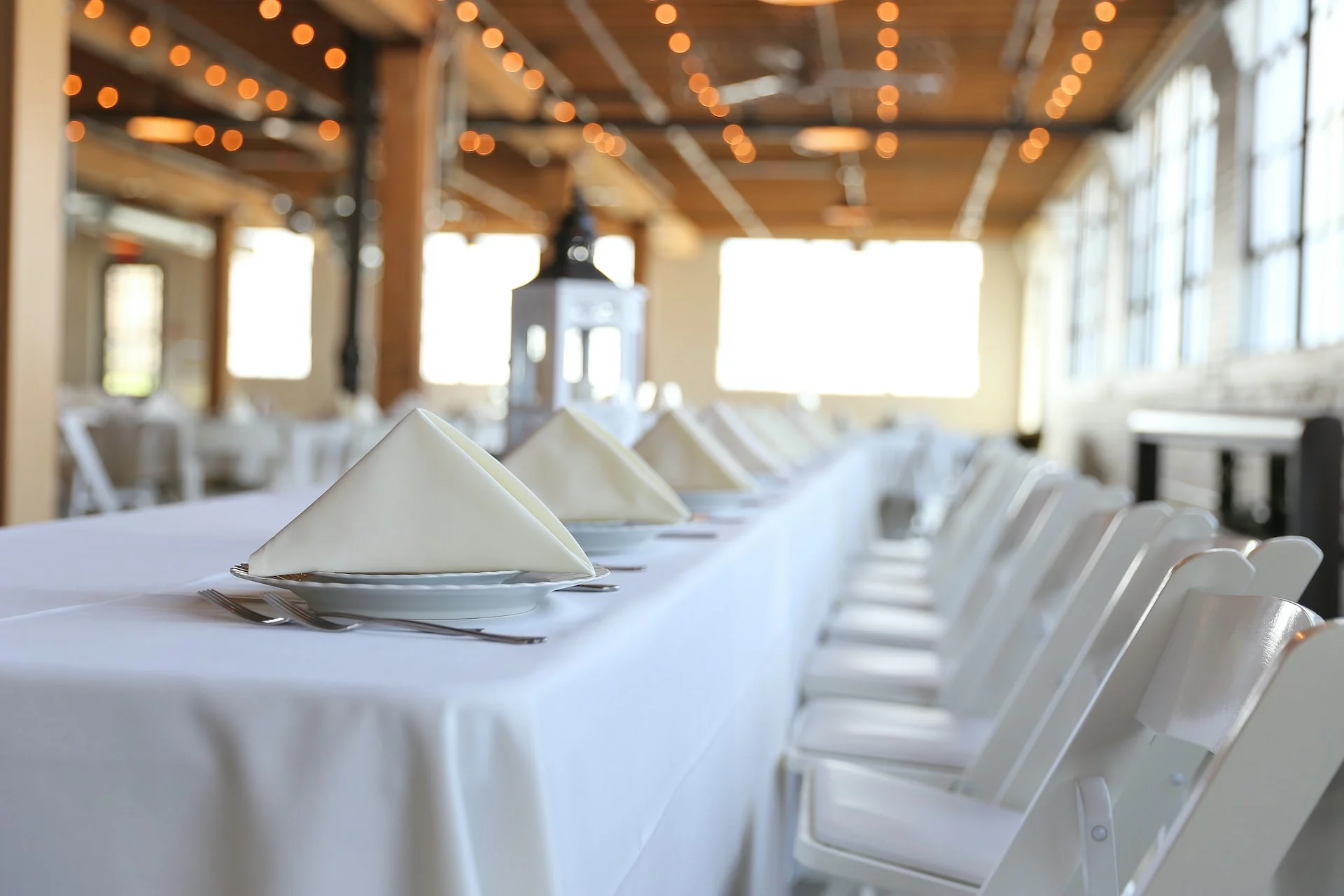If you’re considering taking the plunge and opening a catering business, then you may have encountered some of the same burning questions I had when I first started out. What kind of licenses do I need? How can I make sure my food is safe to serve? What are the best marketing tactics for getting new customers? Having gone through the process myself, in this post I wanted to share with you seven important things that could help save time and money as start your own catering business.
1. Do your research – catering is a lot more work than it seems
Catering can be an incredibly rewarding job, but it takes a lot of work to do it right. People often think that catering is just a matter of preparing food and serving it. However, there’s much more to the job than meets the eye. From menu planning to vendor management, there’s no shortage of responsibilities to handle when you are in the business of catering.
To become an effective caterer, you must do your research. This involves researching ingredients and recipes, as well as learning about local health codes and regulations for food service businesses. You must also learn about purchasing and tracking inventory for food items that need to be ordered regularly and in bulk. Once all of this knowledge has been acquired, you will have developed a comprehensive understanding of what is required from a catering perspective.
Once your research is complete, the next step is to begin putting your plans into action. If you plan on running a commercial kitchen for catering purposes, investing in quality equipment is essential for success. Having the proper pots, pans, plates and utensils are important for maintaining cleanliness standards at all times. You will also need well-designed storage areas to hold ingredients until they are ready to be used in recipes or menus. Finally, no kitchen would be complete without the proper equipment dedicated solely to line cooking and plating meals quickly yet deliciously!
Organization is key when it comes to catering events of any size or type. Deliveries must be tracked and budgets kept up-to-date if you want your business to remain profitable over time. Up-front communication with guests regarding allergies or dietary restrictions should also never be underestimated; taking this extra step allows everyone involved with the event (including yourself) truly enjoy their experience! Fortunately technology makes most of these tasks manageable with relative ease now days – but when starting out especially make sure you build good practice into everything from the beginning!
Overall, becoming a successful caterer requires dedication, hard work, attention-to-detail and flexibility – all qualities necessary for providing excellent customer service every single time someone orders your services! Do not let yourself get overwhelmed by thinking that offering catering services does not require as much effort as setting up other types of businesses: take your time doing research beforehand so that once things start rolling you are prepared for any surprises along the way!
Licenses & Registrations
Starting a catering business can be an incredibly overwhelming experience. From the initial idea of opening shop, to the day you hand out your first plate of food, there is an array of things to consider and research. One of these elements is understanding the necessary registrations and licenses you’ll have to acquire in order for your business to operate legally. It’s important that all legal requirements are met so that not only are you compliant but also so that customers have the confidence to choose your catering services over those of competitors.
Before diving too deep into acquiring these licenses, it’s essential to do some thorough research into what kind of licenses will apply to your specific situation. Each state has different requirements and regulations when it comes to owning and operating a catering business, so make sure you’re aware of all details specific to your area before you start making plans as this will save time (and potentially money) down the line.
For instance, permits may need to be submitted if you plan on serving alcoholic beverages during events. Similarly, food handler certificates may be required if you’re preparing perishable items at offsite locations or in someone else’s kitchen – each state will vary in regards to these regulations. Additionally, some areas require licensing and proof of insurance before providing any type of service or product, including meals delivered directly from a caterer or prepared by them off-site.
In addition to specific permits related specifically to catering and menu items; there are more general licenses every business needs in order to function properly within the law such as a Business License which allow businesses involved in certain activities like selling products or providing services within their state or city limits operate legally. A Tax Registration Certificate is also typically needed upon starting any kind of business – it’s important that taxes are paid correctly and on time so check with local government on this front too.
It is also worth noting that most states require employers in the industry provide workers compensation insurance for all employees operating under their name which allows businesses coverage against workplace injuries or other incidents that occur during work hours or while performing job-related tasks – but again double check with local authorities as rules can widely vary depending location.
So remember: doing research is probably one of the most important steps when starting a catering business! Make sure you take all the relevant registrations into account when creating your budget and don’t forget about taxes either – it’s always better safe than sorry! With knowledge about local laws and regulations now behind you, it’s time for plenty more hard work ahead.
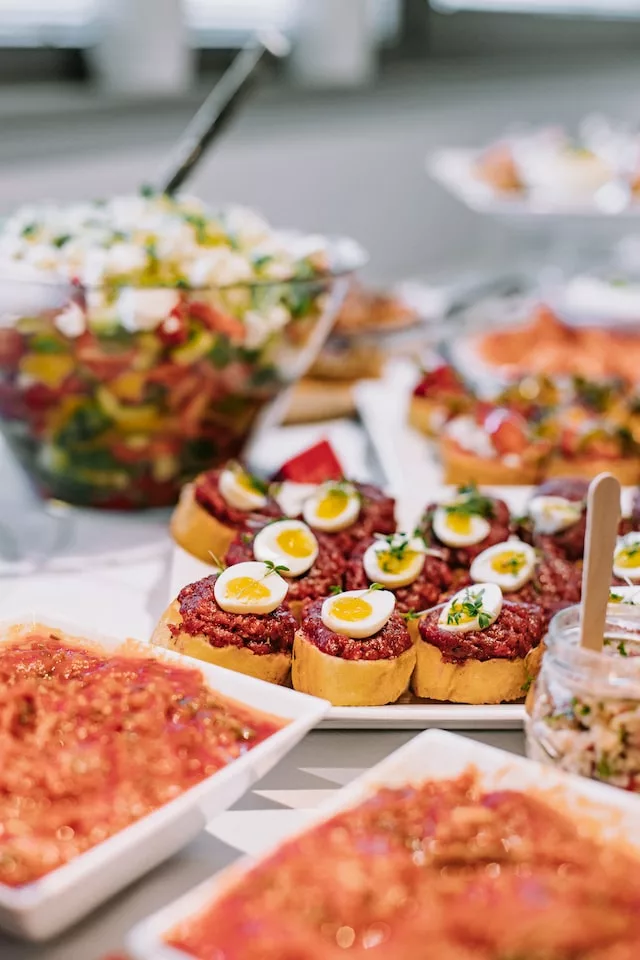
2. Have a solid business plan and be prepared to pivot as needed
Starting a catering business can be a rewarding experience, but it is also important to go into the venture with eyes wide open and a plan of action. When done right, there is potential for great financial success; however, like all businesses, there are certain things that need to be considered in order to maximize your chances of success. In this post, I will highlight two essential pieces of advice that I wish I knew before starting my own catering business: have a solid business plan and be prepared to pivot as needed.
Having a solid business plan is key when launching any kind of venture, not just catering. You’ll need to consider important details such as start-up costs, necessary equipment list and operational flow. Additionally, you should create an effective marketing strategy including both digital and traditional platforms for introducing your new service or product to potential customers. All of these components are integral in establishing an initial foundation from which you can build upon.
Another good piece of advice would be to stay flexible throughout the process. Catering isn’t always predictable and you should expect some surprises along the way – especially during peak seasons! By understanding how quickly the industry can fluctuate (especially depending on location) it allows you to see upcoming trends further ahead and respond accordingly with alternative strategies or plans if needed.
Have regular meetings with yourself (or your team) as life events come up or ideas arise – Stay on top of trends in order to really understand what customers want and explore ways that could help expand your offerings more efficiently. Finally, always remember: There will be high points and low points no matter what line of business you are in – The key is finding ways to thrive within those moments so that you can continue doing what truly matters most: providing quality services for your clients!
Successful entrepreneurs understand the value of having a well thought-out plan combined with flexibility when starting a new venture. To really make it work in the catering world (or any other industry), don’t forget: have a solid business plan but also be prepared to pivot if needed based on market changes or unforeseen circumstances! Good luck!
3. Get organized and create systems for everything
Starting a catering business can be both exciting and daunting at the same time. As with any venture, there will always be challenges along the way, but one of the best ways to ensure success is to get your catering business well organized before you launch. While it may seem trivial, having sound systems in place for everything from food preparation to billing and customer service can make or break your endeavor.
One of the most important things to establish when starting a catering business is an effective system for menu planning and ingredient sourcing. This involves researching local suppliers, seasonal ingredients and recipes that will appeal to different customer tastes. Additionally, having knowledge about various health codes and regulations for food service businesses is essential for maintaining viable operations.
Once you have these components sorted out, setting up an organized kitchen environment becomes much more manageable. Investing in quality pots, pans, plates and utensils are all necessary for successful line cooking and plating meals quickly yet deliciously! In addition, storage areas should be designed carefully in order to keep ingredients fresh until they are ready to be used in menus or recipes.
Organization is also key when it comes to tracking deliveries and budgets over time so that your business remains profitable. Without proper systems in place here too, a caterer can easily fall behind on other tasks like communication with guests regarding allergies or dietary restrictions which is a crucial element of providing excellent customer service every single time someone orders your services!
Finally, technology has made many of these tasks even easier through use of comprehensive databases or inventory management software tools – but regardless what tools you use make sure you build good practice into everything from the beginning! Above all else remember that the better organized you are from the start, the easier it will be to scale up once things really take off!

4. Get the math down – food waste eats your margins
Starting a catering business involves a lot of math. From calculating ingredient costs to calculating margins and everything in between, it’s important to understand the bottom line numbers before you get too far into the process. But one aspect of this equation that often goes overlooked is food waste – and more specifically how food waste can eat away at your profit margins if not managed properly. In this post, I’ll talk about why it’s important to get the math down when it comes to food waste in order for your catering business to be successful.
Firstly, an effective system for tracking all ingredients used and associated costs is key in order to maintain manageable profit and loss statements (P&L). This might involve breaking down purchases from suppliers by item/unit as well as creating accurate inventory lists – both of which will help inform future purchasing decisions based on cost-savings opportunities or market trends.
Secondly, getting ahead of possible food waste issues is a must! Establishing procedures around proper storage of ingredients (refrigeration, dry goods etc.) will go a long way in preventing spoilage on the back end and as a result keep your margins healthy over time! Additionally, developing portion control systems (like premeasured spoons or cups) are also useful tools that can help eliminate costly wastefulness during preparation stages.
Finally, hands-on training with your catering employees should be taken seriously so that everyone is aware of both company goals as well as industry standards for minimizing potential losses due to incorrect measurements or accidental spills. Having team members who are knowledgeable about different recipes/ingredients will go a long way towards reducing any potential risks that could arise from ordering too much product – resulting in excess spoilage or increased storage needs later on!
Understanding the importance of tracking ingredient costs and preventing unnecessary food wastage is essential in running a successful catering business. By taking proactive steps like measuring out portions accurately; storing ingredients properly; training staff effectively; and having an organized system for managing inventory – you’ll have much better chances at maintaining profitability over time!
5. Learn how to cook (or outsource cooking)
Starting a catering business requires knowledge in various areas – from menu planning and ingredient sourcing, to customer service and delivery tracking – but one of the most essential elements of success is becoming well-versed in the art of cooking…or at least understanding how it works! So, whether you’re a seasoned chef or someone who is just starting out in the world of catering, here are some tips on how to approach learning (or outsourcing) your cooking skills. With the right chef, you’ll develop a great catering menu.
If you don’t have any formal culinary training under your belt, then investing in a few classes may be helpful. This will give you an overview of fundamental kitchen techniques ranging from knife skills to food safety and beyond. While these are important foundation topics for any caterer, these classes can also help equip you with confidence when creating recipes or menus for different types of events.
You could also consider utilizing resources like recipe books or online tutorials for guidance on certain dishes or techniques that might be done differently than what you’re used to. Additionally, getting feedback from people who’ve tried your dishes would also provide fantastic insight into where improvements can be made or new ideas explored!
On the other hand, if cooking isn’t something that interests you – then outsourcing may be an option worth considering as well. There are countless talented chefs available who can help take your business to the next level with their expertise and proficiency when it comes to fine dining presentations and gourmet meals! Don’t let a lack of cooking experience keep you from achieving greatness – find ways to bring experienced professionals onboard who can make all those delicious visions become reality without having to lift a finger yourself!
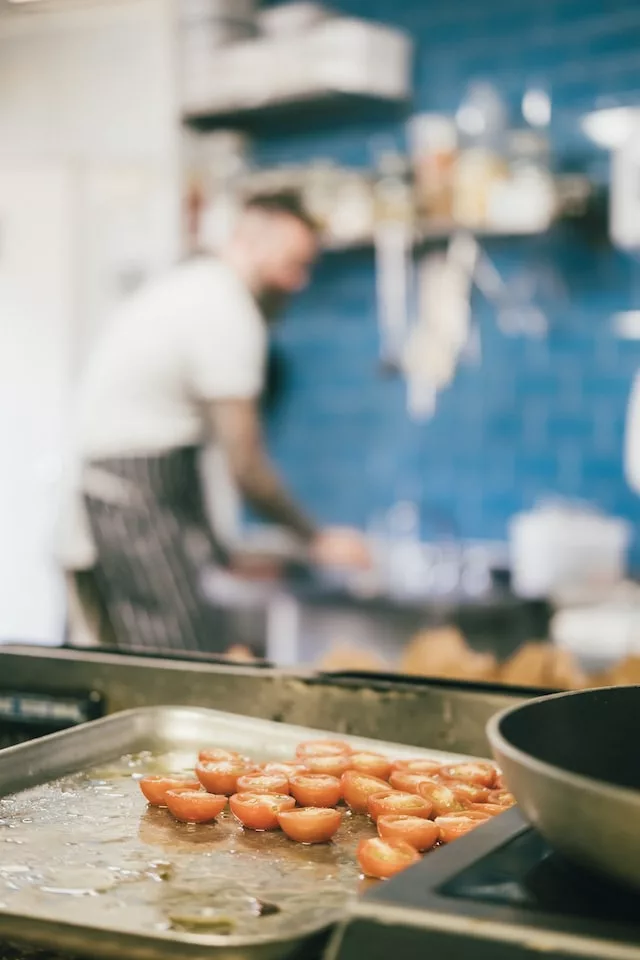
6. Invest in good quality equipment – it will save you time and money in the long run
Starting a catering business can be an exciting and rewarding endeavor. However, many entrepreneurs make the mistake of buying low-cost equipment to save money in the short-term. When it comes to catering businesses, investing in high-quality equipment is essential for success.
Good quality equipment helps ensure your customers receive food that is cooked to perfection every time. You avoid costly mistakes such as serving undercooked or over cooked food. Additionally, good quality equipment is often more durable so you don’t have to constantly buy replacements throughout the year. This can save you a lot of time and money in the long run since you won’t have to keep replenishing your inventory.
When selecting the right type of equipment for your needs, it’s important to consider what types of dishes you plan on offering and how often they will need to be prepared. If you’re doing mostly onsite cooking, then investing in higher end restaurant grade appliances may not be necessary as they are usually much more expensive than other options. However if you’re doing a lot of large-scale catering events that require multiple dishes at once then restaurant grade may be a better option as they are designed to handle high volume tasks efficiently and quickly without sacrificing quality.
Additionally, it’s important to find kitchen tools that work well together and are easy to use when managing multiple tasks at once. Make sure you properly research each piece of equipment before making any purchase decisions especially if it is an expensive item that requires professional installation or maintenance.
Finally, consider how much space you have available for storage when deciding which pieces of equipment will work best for your situation. There are plenty of smaller countertop units made specifically for catering businesses but if space is limited then opting for a modular setup with customizable accessories might be best suited for your needs instead.
7. Market, market, market
When starting a catering business, one of the most important things to remember is that marketing is key. Despite having great food and an efficient team, if no one knows about your business, you won’t be able to make any money. Being visible and making sure your customers know who you are is essential for gaining new clients and keeping existing ones.
One of the best ways to market your catering business is to build relationships with local vendors and venues. Local marketing for catering businesses is not just to potential customers, but also to facilities and party planners. Many event planners will routinely book caterers if they have someone they trust, so get out there and meet potential partners in person. Show them what you can do by dropping off samples of your food or providing discounts on your services. Additionally, take advantage of online platforms such as Instagram, Twitter, Facebook or even Yelp reviews to showcase your work and engage with potential customers.
Another way to market yourself is through traditional advertising methods like radio campaigns, TV commercials or print ads in newspapers and magazines. However these options can be quite expensive in comparison to digital marketing so it’s important to weigh up the costs versus benefits before moving forward with any form of advertising.
Finally, don’t forget about word-of-mouth as this can be a powerful tool when consumed properly! Encourage happy customers to leave reviews online or recommend you to their friends; this will go a long way towards building credibility for your business. Also consider offering incentives such as discounts or special offers for those who refer new customers — this will make sure people keep talking about you!
Ultimately, investing time and resources into marketing initiatives pays off significantly over time — so don’t skimp on this aspect of running a successful catering business! Make sure people are aware of your services and actively promote yourself wherever possible in order to maximize profits. With careful planning and marketing strategies implemented correctly ,you will soon see a steady stream of loyal returning customers which will help sustain your venture over time.
Taking the plunge and starting a catering business is a big step and one which can bring great rewards if it’s done well. I hope that by sharing my experiences, I’ve been able to provide some insight into what to expect when opening your own catering business. With hard work, dedication, and these tips in hand, you too can be successful!
Related Catering Articles
Who are the main customers for a Catering Business?
Starting a catering business can be both exciting and daunting. One key factor in its success is understanding who the main customer groups are and how to meet their needs.
How do I name my Catering Business?
Naming your catering business is an important first step in starting your business. It can lay the foundation for how your customers view, remember and engage with your business. Finding the perfect name to fit all those criteria, however, can be a challenge.
Is a Catering Business a good business?
If you’re interested in becoming your own boss and using your passion for food and hospitality to make a living, then starting a catering business could be the perfect opportunity. But before taking the plunge, it’s important to understand exactly what running a catering business entails – from the possible pitfalls to the potential rewards.
Do you need qualifications to start a Catering Business?
Starting your own catering business can be a very rewarding experience. However, there are some things you need to know before you get started. In this article, we will discuss the qualifications you need to start a catering business and provide some tips for success.
8 Step Plan to Quickly Open a Catering Business
Catering is a great way to feed your friends, family, and even strangers! If you’re thinking about starting a catering business, here’s an 8 step plan to help you get started quickly.
Start a Romantic Catering Business: Your Complete Guide
Love is in the air—and so is delicious food. If you’re looking to start a romantic catering business, you’re in luck. This guide will show you everything you need to know to get started.
Start a Deli: Your Ultimate Guide
Ready to take the plunge and start your own deli? It’s a big undertaking, but with careful planning and execution, it can be a hugely rewarding experience. Here’s your ultimate guide to getting started.
Start a Pizza Shop: Your Ultimate Guide
Starting your own pizza shop is a dream for many people. It’s definitely not an easy path to take, but it can be very rewarding. This guide will walk you through everything you need to know to make your dream a reality.
7 Mistakes Catering Business Entrepreneurs Make
Catering business entrepreneurs are passionate about food and service, but they may not have the experience or knowledge to run a successful catering business. However, with hard work and dedication, it is possible to build a thriving catering business. Here are seven mistakes that many beginning catering entrepreneurs make.





